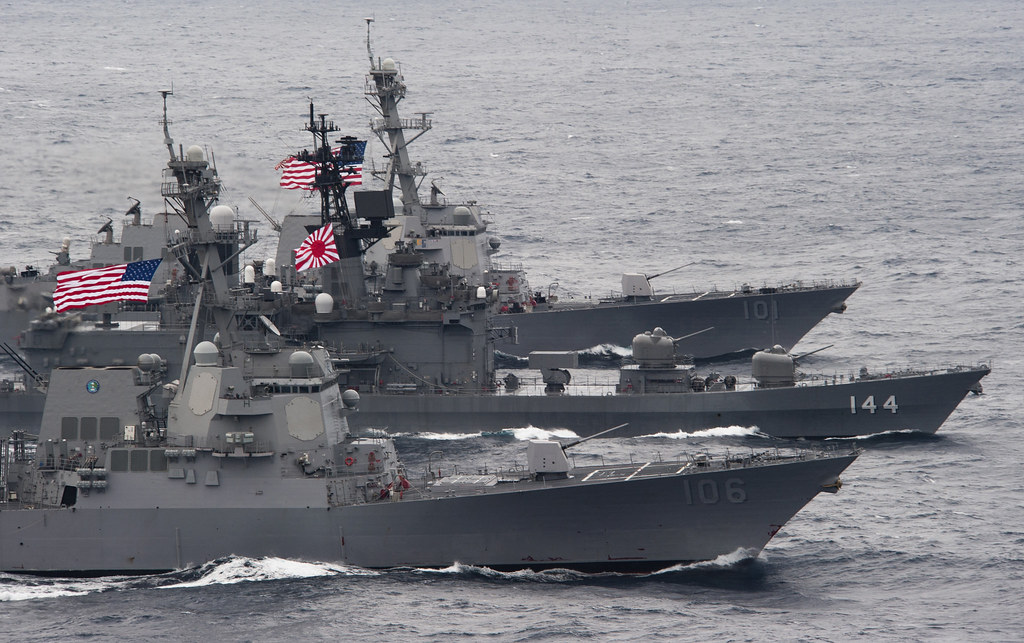 |
| Image: Flickr User - Official U.S. Navy Page |
By Francis P. Sempa
A remarkably prescient WWII geostrategist foresaw a struggle between the U.S. and China for control of the “Asian Rimland.”
During the Second World War, Nicholas Spykman, a professor of international relations at Yale University, wrote two books that explored the fundamental global geopolitical factors underlying U.S. national security, and foresaw a struggle between the U.S. and China for control of what he called the Asian Rimland.
The first book, America’s Strategy in World Politics: The United States and the Balance of Power (1942), was a nearly 500-page tour de force that examined in great detail America’s position in the world “in terms of geography and power politics.” All international politics, Spykman wrote, involved a struggle for power, which “is identical with the struggle for survival, and the improvement of the relative power position becomes the primary objective of the internal and external policy of states.” He analyzed the power position of the United States in the Western Hemisphere, the “Transatlantic” and “Transpacific” zones, and from the perspective of the Old World vs. the New World. He integrated into his analysis economic, demographic and military factors, and concluded that America’s security depended on a favorable balance of power in Europe and the Far East.
In the second, much slimmer book, The Geography of the Peace, published posthumously in 1944, Spykman sketched a geopolitical map that identified the key geographic power centers of the world, including the “Heartland” of Eurasia (H.J. Mackinder’s term for the northern-central core of the Eurasian landmass), the Eurasian Rimland (the crescent-shaped territory abutting the Heartland, which included the countries of Western Europe, the Middle East, Southwest Asia, and the Far East), and North America. In evaluating the power potentials of each key region, Spykman memorably wrote, “Who controls the rimland, rules Eurasia; who rules Eurasia controls the destinies of the world.”
Read the full story at The Diplomat
